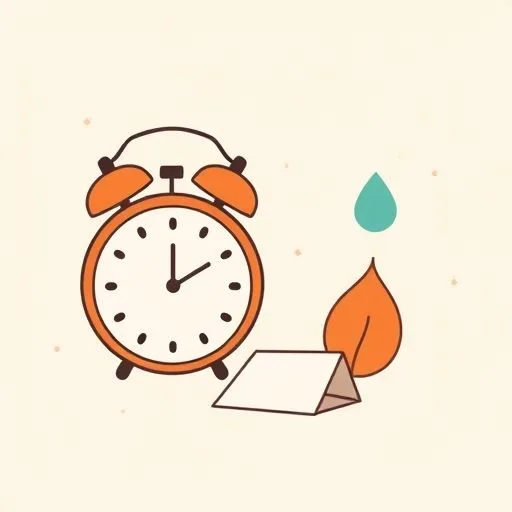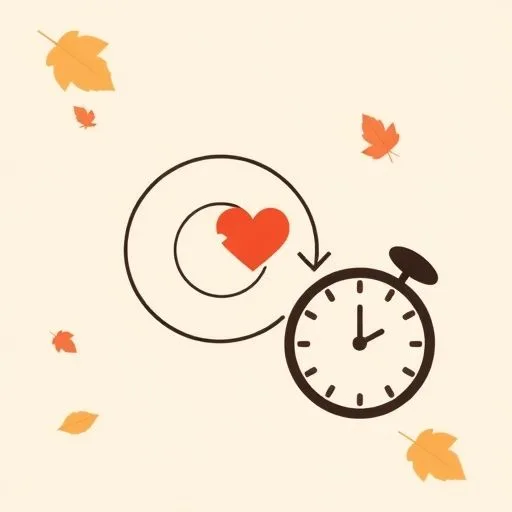
You know those moments when the school calls during bedtime chaos—a child crying, toys everywhere? My chest tightens just thinking about it. I’d fumble the phone like it was burning hot. But her? She takes one quick breath—you know that little pause?—centers herself, and speaks with this incredible calm clarity. Later, over cold tea, I realized: she hadn’t just ‘handled it.’ She’d secretly rehearsed this exact moment while folding laundry at 6am. Like firefighters running silent drills before the alarm sounds, she’d built her invisible practice field. We keep wishing for redo buttons after tough days, but what if the real strength lives in those quiet seconds before life happens? Let’s talk about how mental rehearsal transforms anxiety into that steady, quiet confidence we all admire.
Why ‘Next Time I’ll Know’ Leaves Us Drained

We’ve all stood there—heart pounding after a clumsy playground chat or pacing at midnight rewriting that rushed work email. That loop of ‘If only I’d said this…’ doesn’t just frustrate us; it steals the joy right out of our days. When we wait for life to ambush us, every small hiccup feels like a crisis. A nursery mix-up becomes a week-long guilt spiral. The missed train triggers that stomach knot lasting till bedtime.
And for her? You see it in those quiet kitchen moments—chopping veggies while replaying a tough parent-teacher meeting. That mental replay wastes energy we need for bedtime stories or proper rest. Worse, it makes us feel powerless. Like we’re just waiting for the next curveball instead of knowing we’ve got the bat in our hands.
Remember that feeling when the perfect comeback strikes at 2am? So true, isn’t it? But what if we could catch those thoughts before they become regrets? What if we stopped wishing for time machines and built our own practice ground instead?
Where Rehearsal Happens (Spoiler: It’s Your Daily Routine)

It’s not about grand strategies—it happens in stolen moments. While waiting for the kettle to boil. During that walk home from school drop-off. She pictures tomorrow’s tough spot: what if the child clings at the door? What if it rains? She doesn’t just hope for smoothness—she runs through three calm responses like flipping pancakes. ‘I’ll stay present and sing the goodbye song,’ she thinks, or ‘I’ll let them hold my scarf for 30 seconds.’ It’s not worry; it’s building muscle memory. Those quiet neural pathways strengthen with every imagined scenario—no apps or timers needed.
Last week, when school needed an unexpected volunteer, she didn’t panic. She smiled: ‘Sorted it in my head during breakfast.’ Turns out she’d quietly rehearsed saying ‘no’ gently to the parent group, then offered a practical alternative. Seeing her test-run tough moments in her mind—without fuss, without pressure—that’s the magic. Suddenly real life feels less like navigating a dark maze and more like walking a familiar path.
Your No-Pressure Toolkit (Yes, Really)

This isn’t another chore for your list—it’s weaving calm into existing pauses. Yesterday, while waiting in the coffee shop line after a train delay, I saw her thumb trace her mug rim, eyes distant. She was running tomorrow’s tricky talk with her manager about schedule changes. She’d spotted the pressure point (deadline clashes with pickup time), then carved out three calm responses in under five minutes: ‘Could we shift the 3pm call?’ / ‘I’ll finish after bedtime’ / ‘Let’s share the prep work.’ No notes. No spreadsheets. Just mental dress rehearsal in plain sight.
It’s forgiving by design. Remember when she tried rehearsing handling a grocery store meltdown and ended up laughing? ‘Turns out I actually would hug you in the cereal aisle,’ she teased. That’s the beauty—you adapt through gentle trial, not perfection. And the ‘rehearsal partner’? Sometimes it’s your partner listening over dinner (‘Imagine if the teacher questions the food plan…’), sometimes it’s the kitchen plant absorbing whispered ‘what ifs.’ She proves it happens where you already are—in the ordinary rhythm of your day.
The Ripple Effect You Can’t See

It’s subtle, but you feel the shift. When the child had that fever last Sunday, she didn’t spiral. ‘Already pictured this during my shower,’ she said, calmly listing steps: thermometer check, dosage timing, who’d call the clinic. Where some might panic, she moved with quiet certainty. That’s rehearsal becoming grace—not because she’s special, but because she’d already walked through the fire in her mind.
You’re not dodging life’s surprises anymore. You’re greeting them like old friends.
And the magic spreads. Now when toys topple, the child says ‘Oops—I’ll try again’ and rebuilds. But the deepest change? Less resentment when work calls after dark. Because you both know: she’s not winging it. She’s prepped. Seeing her turn anxiety into calm action? It’s deeply attractive. When she glances across the room mid-chaos, that look isn’t stress—it’s ‘we’ve practiced this, love.’ And that quiet confidence stays with you—long after the day ends.
Source: Digital twins give cyber defenders a predictive edge, Silicon Angle, 2025/09/13 17:09:41
